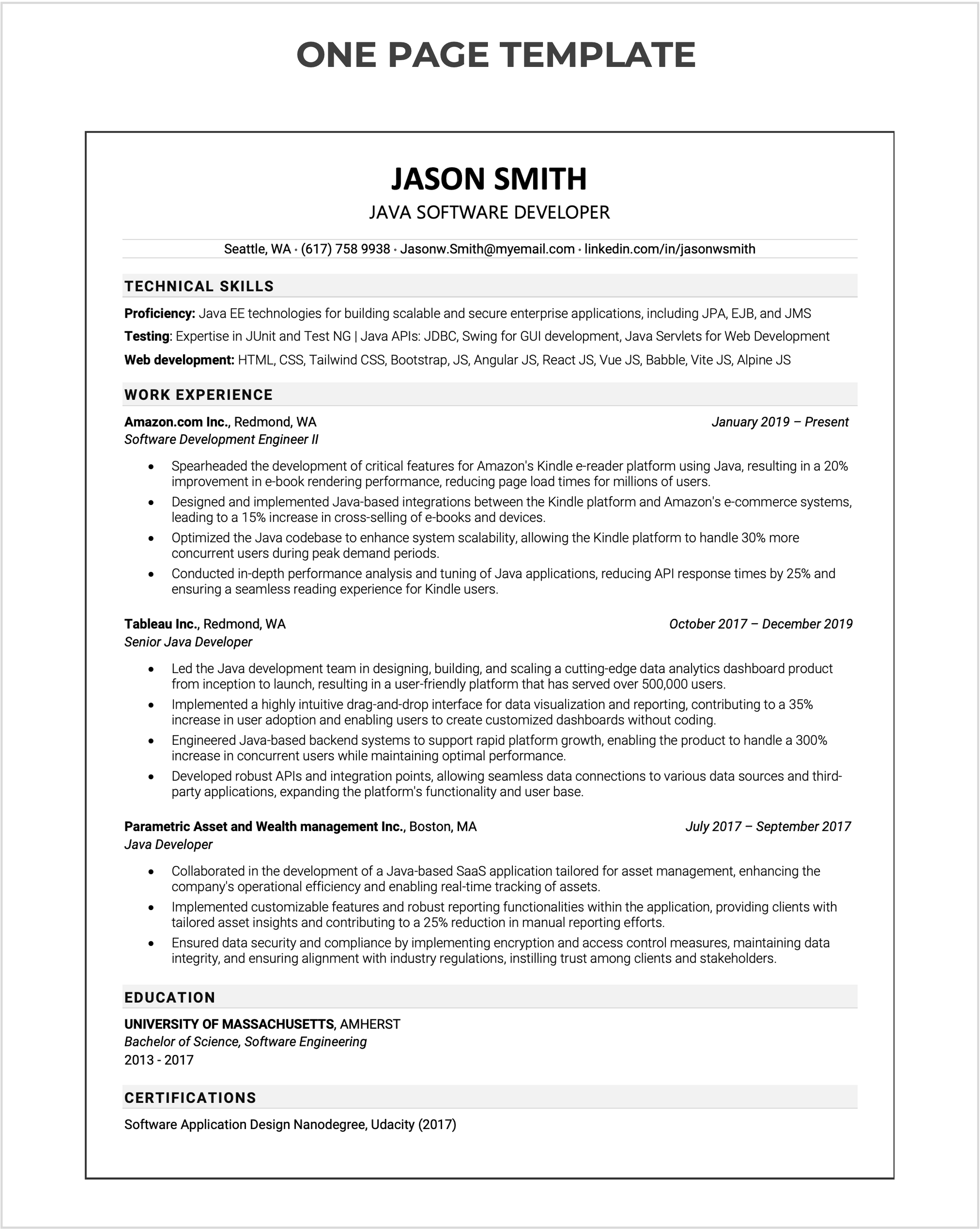
Educator and Career Consultant, Resumeover.com
How to write your resume in 2024?

If you are someone in the job market, either already employed somewhere or beginning to look for work, you know the value of resume. Given how important a resume is and nearly everyone knows how to write one, we will focus on the essential aspects of a good resume to keep in mind.
From our personal exeriences of working with several professionals, helping rewrite their resumes to best show their personal brand and capabilities, we see that many professionals place a lot of emphasis on how their resume looks. It is also true that those that place a lot of emphasis on their resume looks inadvertently place relatively less emphasis on the contents of their resume and how well the content is presented. The focus should be on the content of the resume and not so much on the looks of the resume.
If you want to take a look at a good resume template that does not get in the way of showcasing your skills, check the Java developer resumes we have in store. These resume templates are not only ATS-tested, but also they are designed to highlight the contents of the resume than take the focus away from them.
The job market is evolving at a much more rapid pace than in the last 5 - 7 years. This means that the need for a a well-crafted resume is more crucial than ever. As we navigate the dynamics of the job market, the increasing role of technology in hiring processes demands that job seekers adapt their resumes to stand out in a competitive, digital-first environment. Whether you're a recent graduate embarking on your career journey or an experienced professional seeking new opportunities, our aim is to present a few essential aspects of your resume building with this guide.
Sample Java developer resume

Let us spend some time first familiarizing ourselves with emerging trends in resume writing
Emerging Trends in Resume Writing for 2024
AI-friendly formats:
Gone are the days of elaborate designs and complex layouts. In 2024, simplicity is key. Opt for clean, straightforward formats that are easily scannable by AI systems. Use standard headings like "Experience," "Education," and "Skills" to ensure your information is correctly categorized. Avoid using graphics, tables, or unusual fonts that might confuse AI readers.
Personal branding and storytelling:
Your resume should tell a compelling story about your professional journey. Begin with a strong personal brand statement or professional summary that encapsulates your unique value proposition. Throughout your resume, maintain a consistent narrative that aligns with your career goals and the position you're targeting.
Focus on skills and achievements over job duties:
Instead of listing day-to-day responsibilities, highlight your specific accomplishments and the impact you've made. For example, rather than stating "Responsible for social media management," try "Increased social media engagement by 50% through strategic content creation and community management."
Inclusion of remote work skills and adaptability:
With remote and hybrid work models becoming increasingly common, showcase your ability to thrive in diverse work environments. Highlight skills such as virtual collaboration, time management, and proficiency with remote work tools.
Emphasis on continuous learning and upskilling:
In a rapidly changing job market, demonstrating your commitment to ongoing learning is crucial. Include recent certifications, online courses, or workshops you've completed, especially those relevant to your target role or industry.
We will be covering how to go about matching the skills on your resume with those on the job description in a few sections below.
Common mistakes to avoid in 2024
Don't ignore ATS:
Applicant Tracking Systems (ATS) are software used by companies to sort and rank resumes. Ensure your resume is ATS-friendly by using a standard format, incorporating relevant keywords, and avoiding complex design elements.
Key words are important:
Identify key skills and qualifications from the job description and naturally incorporate them into your resume. This helps your application pass through ATS filters and catch the attention of human reviewers.
Don't use outdated formats:
While creativity can help you stand out, overly elaborate designs can backfire. Stick to clean, professional layouts that balance aesthetic appeal with readability.
Tailor your resume to each job:
One-size-fits-all resumes are a thing of the past. Customize your resume for each application, emphasizing the experiences and skills most relevant to the particular job.
Include only the relevant information:
Tailor your resume to each job application by focusing on the most relevant experiences and skills. Omit information that doesn't directly support your candidacy for the specific role.
Resume tips for recent graduates
Highlight projects:
Showcase academic projects or coursework that demonstrate skills relevant to your target industry. Describe these experiences in terms of the problems you solved and the outcomes you achieved.
Show any experience you may have:
Even if your internships were short-term, highlight the skills you gained and any tangible contributions you made. Use action verbs to describe your experiences, such as "Developed," "Implemented," or "Collaborated."
Focus on transferrable skills:
Don't underestimate the value of part-time work. Frame these experiences in terms of the professional skills you developed, such as customer service, team collaboration, or problem-solving.
Include extracurricular activities:
Leadership experiences in student organizations or volunteer work can demonstrate valuable soft skills. Focus on roles where you led teams, organized events, or made meaningful contributions.
We have more tech skills than we think we have:
In today's digital-first world, showcasing your tech savvy is crucial. List relevant software proficiencies, coding languages, or digital tools you're familiar with, especially those commonly used in your target industry.
Resume tips for exprienced candidates
It's all about achievements:
Highlight your career trajectory by showcasing promotions and increased responsibilities. For each role, emphasize your most significant achievements and their impact on the organization.
Be gracious about gaps in employment:
If you have gaps in your employment history, address them proactively. Briefly explain any extended periods away from work, focusing on any skills or experiences gained during that time.
Show those new skills you gained along the way:
Demonstrate your ability to evolve with industry trends. Highlight instances where you've learned new technologies or adapted to significant changes in your field.
Show your ability to lead:
Showcase your ability to lead and develop others. Describe situations where you've mentored colleagues, led teams, or contributed to organizational culture.
Show them evidences:
If you're changing industries or roles, focus on transferable skills and experiences that align with your new career path. Use industry-specific language to demonstrate your understanding of the new field.
The beginning of your resume should feature a strong summary or objective statement. Use this section to provide a brief but impactful introduction to your professional self. Mention your years of experience, specific Java-related skills, and any notable achievements or goals. Make sure it's concise and engaging, piquing the employer's interest right from the start.
En expert tip here - if your resume is spilling over to the top 10 - 15% of the second page, you might want to choose between making the career objective statement to as little as meaningfully possible or even cut it out entirely.
The most important sections on your resume are going to be the skills and the work experience that shows you have indeed applied the skills you are listing under the skills.
Conclusion
Crafting an effective resume in 2024 requires a balance of technical savvy and personal branding. By staying aware of current trends, avoiding common pitfalls, and tailoring your approach to your career stage, you can create a resume that opens doors to exciting opportunities. Remember, your resume is a living document that should evolve with your career. Regularly update it to reflect your latest achievements and skills, and always customize it for each application. With these strategies, you'll be well-equipped to navigate the job market of 2024 and beyond.